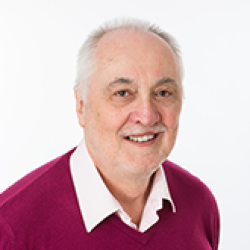Dr Norman
Claringbull
Psychotherapist
Counsellor
Psychologist
The Friendly Therapist
Call now for a free initial telephone consultation
Total confidentiality assured
In-person or video-link appointments
Private health insurances accepted
Phone: 07788-919-797 or 023-80-842665
PhD (D. Psychotherapy); MSc (Counselling); MA (Mental Health); BSc (Psychology)
BACP Senior Accredited Practitioner; UKRC Registered; Prof Standards Authority Registered
BLOG POST – Winter 2016
Posted on December 29th, 2015
COUNSELLORS AND PSYCHOTHERAPISTS – PROFESSIONALS OR MAGICIANS?
Whenever we contact a professional we usually have a fair idea about what we are likely to get. Doctors doctor, teachers teach, priests preach, and so on.  They, and all the other professionals know what they are supposed to do and the public knows what to expect. This is because every profession, every trade, every calling, has its own accepted area of expertise. Lawyers know the law; surveyors know buildings; bankers know finance. They and all the other professional experts know what they are supposed to know. Equally importantly they know what they don’t know. Furthermore, the established professions all require new entrants to be properly trained and to have reached a basic minimum standard before they can start practicing. Can counsellors and psychotherapists say the same? Are they all properly trained, educated, and qualified? Do their customers know what to expect from them.
They, and all the other professionals know what they are supposed to do and the public knows what to expect. This is because every profession, every trade, every calling, has its own accepted area of expertise. Lawyers know the law; surveyors know buildings; bankers know finance. They and all the other professional experts know what they are supposed to know. Equally importantly they know what they don’t know. Furthermore, the established professions all require new entrants to be properly trained and to have reached a basic minimum standard before they can start practicing. Can counsellors and psychotherapists say the same? Are they all properly trained, educated, and qualified? Do their customers know what to expect from them.
It seems to me that if practitioners in the psychological therapies, (the so-called ‘talking therapies’), want to be respected as genuine professionals then that respect has to be earned. To begin with they have to be able to answer a very simple question – “what exactly is psychotherapy and/or counselling”? Or, put another way, what is it that counsellors and psychotherapists actually do? What should the public expect of them?
The sad fact is that there is no general agreement within the psychotherapeutic world about what the answers to these apparently simple questions should be. All of the mainstream professions have their core bodies of disciplinary knowledge – their ‘trade secrets’. In the case of the psychological therapies there is no such knowledge base. The problem is that the talking therapies have emerged from a number of discontinuous and conflicting theoretical backgrounds. This means that there is little chance of establishing any professional common ground between the various types of psychological therapists. Therefore, it is unlikely, at least as matters stand right now, that counsellors and psychotherapists could ever agree on a common purpose. They certainly cannot agree on what their trainees should, or should not, be taught. Neither can they agree about what their practitioners should, or should not, be doing. Instead controversy rages, argument abounds, and doctrinal disputes are bitterly fought over.
The story of this on-going, in-house, therapeutic civil war is threaded throughout the history of psychotherapy and counselling. The battle goes on today – no armistice is in sight! The psychological therapies have long been crudely divided into three generic types or ‘Schools’. These distinctions largely remain in place today. This is the root cause of all the rivalries. Firstly there is the Psychodynamic School with its claim that it is our unconscious or instinctual reactions to our developmental experiences that make us what we are. Then there is the Humanistic School with its claim that it is how we deal with our ‘here-and-now’ interpersonal and intrapersonal interactions that define us. Finally there is the Cognitive-Behavioural School with its claim that our personalities depend on our ingrained ways of thinking and behaving. Unfortunately, the adherents of any one of these Schools profoundly reject the arguments of the other two. Equally unfortunately, adherents of each School’s many subdivisions just as passionately reject the stances of their rival subdivisions.
For me, a hard-core scientist, the way to resolve these differences is obvious. Let’s subject all the therapies to some rigorous testing and see what works and what doesn’t. Let’s find some evidence. That is what scientists do! The first obstacle is of course that a significant proportion of counselling’s and psychotherapy’s self-styled ‘professionals’ reject to very notion of scientific enquiry. They claim that therapy is an art and not a science and therefore neither the process nor its outcomes can be, or even should be, codified or measured. So, it seems to me that for those sorts of practitioners, if science is ruled out, it is difficult to see what else they can offer their patients apart from the ineffable. In effect, they are asking their clients to suspend their rational beings and accept instead the power of the unknowable; the indefinable. In other words, they are required to believe in magic. Professional skills are degraded in to hocus pocus. Is the core purpose of counselling and psychotherapy simply to say “abracadabra”? Is that the therapists’ real trade secret?
Actually, as far as the better-educated therapists are concerned, their claim to professional status is based on a much sounder footing. The good news is that properly trained, properly scientific, psychotherapy researchers have produced some good quality evidence. Generally speaking they have found that the mainstream therapies actually work and do so more or less equally. Further research is starting to suggest that there may indeed be some common, or overarching, curative factors permeating most of psychotherapy’s divisions and sub-divisions. This might mean that eventually we could develop a general body of commonly agreed basic disciplinary knowledge that would allow counsellors and psychotherapists to start to call themselves true professionals. Of course that would mean that each therapeutic School’s defenders to give up some of their entrenched positions. However, that is a story for another day. You can find out much more about this issue in my book ‘What is Counselling & Psychotherapy’ – there is a link on my website or you can order it from Amazon.
Finally, please note that in this Blog I began by talking about ‘properly trained, educated, and qualified professionals’. The really scary fact is that anybody, qualified or not, trained or not, can claim to be a counsellor or psychotherapist. The even scarier fact is that some of talking therapy’s main professional bodies continue to admit as members, people whose qualification levels are very questionable. I’ll be discussing that sad state of affairs in my next Blog. I shall be examining the poor quality of therapist training in the UK and revealing how the unqualified charlatans and the underqualified ‘professionals’ deceive their customers.
My book ‘What is Counselling & Psychotherapy’ – follow this link
